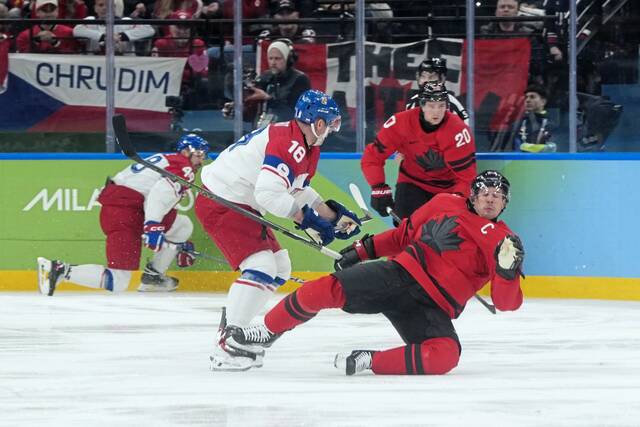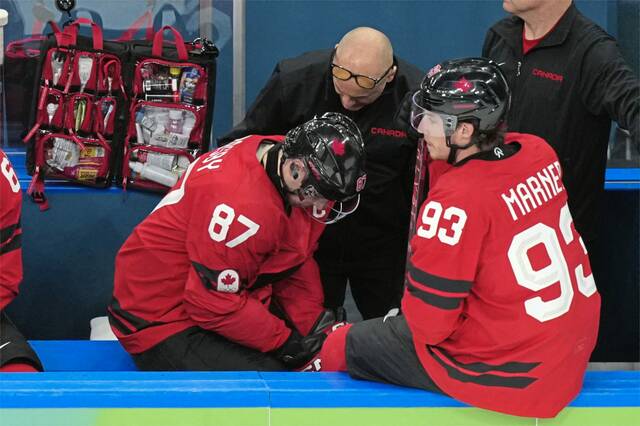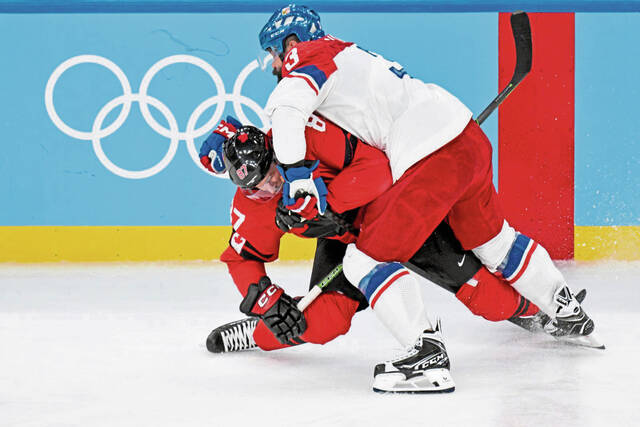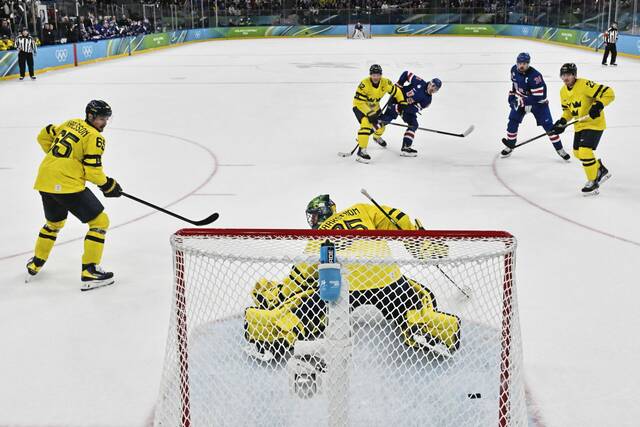As recently as Friday, Pittsburgh Penguins general manager Ron Hextall indicated he did not want to add a “rental” player — an individual on a contract that is scheduled to expire this upcoming offseason — in exchange for a high-end future asset.
“Our intent is to continue to make this team better this year,” Hextall said in Cranberry. “And years beyond this year.”
He stayed true to that pursuit in some fashion Wednesday when he acquired forward Mikael Granlund from the Nashville Predators.
Granlund, who turned 31 on Sunday, is not a rental. He is in the second year of a four-year contract that carries a salary cap hit of $5 million. And all the Penguins had to give up to acquire his services was a second-round pick in this summer’s draft.
But if Granlund truly makes the Penguins better for the remaining portions of the regular season — or any span of time — that’s a fair question.
While other teams in the Eastern Conference scooped up All-Stars, and in some cases, future Hockey Hall of Famers earlier this week, the Penguins added a solid and versatile player who certainly improves their beleaguered group of bottom-six forwards and even skate on the top two lines when the occasion arises.
At the same time, it would be charitable to suggest Granlund significantly boosts the fortunes of a team in a daily battle to even cling to the final wild-card seed in the conference, to say nothing of daunting potential matchups against powerful outfits such as the Boston Bruins or Carolina Hurricanes in the first round of the postseason.
Capable of playing wing or center, the left-handed Granlund (5-foot-10, 185 pounds) has appeared in 58 games this season. He has scored 36 points (nine goals, 27 assists) while averaging 18 minutes, 39 seconds of ice time per contest. He also is a contributor on both special teams units as he has clocked an average of 3:03 of power-play this season and an average of 56 seconds with the penalty kill.
A native of Oulu, Finland, Granlund was a first-round pick (No. 8 overall) of the Minnesota Wild and spent parts of eight seasons with that franchise before being traded to the Predators midway through the 2018-19 season. He has played with the Predators for portions of the past five campaigns.
Before this transaction could be completed, the Penguins dealt forward Teddy Blueger to the Vegas Golden Knights in exchange for minor-league defenseman Peter DiLiberatore and a third-round pick in the 2024 NHL Draft and assigned forward Brock McGinn as well as defenseman Mark Friedman to Wilkes-Barre/Scranton of the American Hockey League.
Blueger, 28, is in the final year of a two-year contract with a salary-cap hit of $2.2 million. In 45 games this season, Blueger, the Penguins’ longtime fourth-line center, has 10 points (two goals, eight assists) while averaging 12:46 of ice time. He was also a staple of the team’s penalty kill, having led the team’s forwards with 2:37 of short-handed ice time per contest this season.
A suspected shoulder injury suffered during training camp sidelined Blueger for the first 15 games of the season.
DiLiberatore, 22, was a sixth-round pick (No. 180) by the Golden Knights in 2018. He is in the final year of a three-year entry-level contract that carries a salary cap hit of $880,833.
A left-handed shot, DiLiberatore has never played in the NHL and has split this season between the AHL and ECHL.
With Henderson of the AHL, DiLiberatore has appeared in 22 games and has three assists. Most recently assigned to Savannah of the ECHL, he has six assists in 18 games with that club.
DiLiberatore will report to Wilkes-Barre/Scranton of the AHL.
Most likely, the Penguins took on DiLiberatore as the Golden Knights have 49 NHL contracts, one short of the limit of 50. The Penguins now have 45 such contracts.
As for McGinn and Friedman, they cleared waivers Wednesday afternoon before being assigned to Wilkes-Barre/Scranton.
McGinn is in the second year of a four-year contract that carries a salary cap hit of $2.75 million. With him on the AHL roster, the Penguins are able to remove $1.125 million of his cap hit from their books while $1.625 million would remain.
Appearing in all 60 of the team’s games this season, McGinn has 16 points (10 goals, six assists) while averaging 13:11 of ice time per contest. During a 3-1 road win against the Nashville Predators on Tuesday, McGinn recorded an assist, snapping a 26-game slump without a point.
As for Friedman, he is in the first year of a two-year contract with a salary cap hit of $775,000. That entire figure has been cleared from the Penguins’ books.
A scratch for the past seven games, primarily due to an undisclosed injury, Friedman has played in 11 games this season and has one goal while clocking 15:27 of ice time per contest.
These moves come on the heels of the Penguins jettisoning forward Kasperi Kapanen through waivers Saturday. In the first year of a two-year contract with a salary cap hit of $3.2 million, Kapanen was claimed by the St. Louis Blues.
After all of these transactions, the Penguins currently have $1,095,478 of salary cap space according to Cap Friendly. The NHL’s trade deadline is 3 p.m. Friday.








